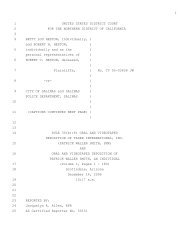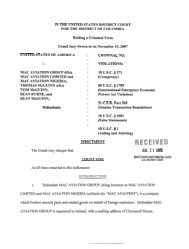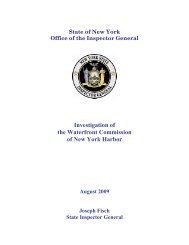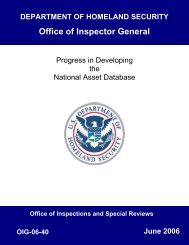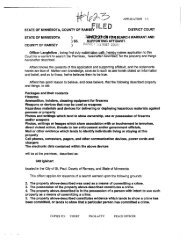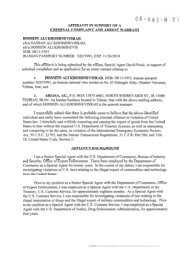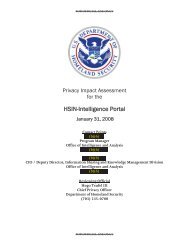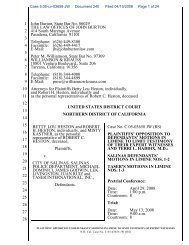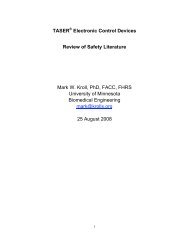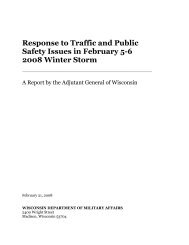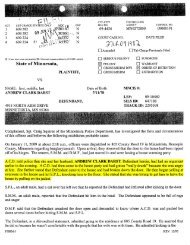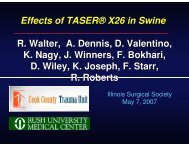04-473 - Garcetti v. Ceballos - Supreme Court of the United States
04-473 - Garcetti v. Ceballos - Supreme Court of the United States
04-473 - Garcetti v. Ceballos - Supreme Court of the United States
Create successful ePaper yourself
Turn your PDF publications into a flip-book with our unique Google optimized e-Paper software.
Cite as: 547 U. S. ____ (2006)7SOUTER, J., dissentingsubstantial concern to <strong>the</strong> public. Were <strong>the</strong>y not able tospeak on <strong>the</strong>se matters, <strong>the</strong> community would be deprived<strong>of</strong> informed opinions on important public issues. Theinterest at stake is as much <strong>the</strong> public’s interest in receivinginformed opinion as it is <strong>the</strong> employee’s own right todisseminate it.” San Diego v. Roe, 543 U. S. 77, 82 (20<strong>04</strong>)(per curiam) (citation omitted). This is not a whit less truewhen an employee’s job duties require him to speak aboutsuch things: when, for example, a public auditor speaks onhis discovery <strong>of</strong> embezzlement <strong>of</strong> public funds, when abuilding inspector makes an obligatory report <strong>of</strong> an attemptto bribe him, or when a law enforcement <strong>of</strong>ficerexpressly balks at a superior’s order to violate constitutionalrights he is sworn to protect. (The majority, however,places all <strong>the</strong>se speakers beyond <strong>the</strong> reach <strong>of</strong> FirstAmendment protection against retaliation.)Nothing, <strong>the</strong>n, accountable on <strong>the</strong> individual and publicside <strong>of</strong> <strong>the</strong> Pickering balance changes when an employeespeaks “pursuant” to public duties. On <strong>the</strong> side <strong>of</strong> <strong>the</strong>government employer, however, something is different,and to this extent, I agree with <strong>the</strong> majority <strong>of</strong> <strong>the</strong> <strong>Court</strong>.The majority is rightly concerned that <strong>the</strong> employee whospeaks out on matters subject to comment in doing hisown work has <strong>the</strong> greater leverage to create <strong>of</strong>fice uproarsand fracture <strong>the</strong> government’s authority to set policy to becarried out coherently through <strong>the</strong> ranks. “Official communicationshave <strong>of</strong>ficial consequences, creating a needfor substantive consistency and clarity. Supervisors mustensure that <strong>the</strong>ir employees’ <strong>of</strong>ficial communications areaccurate, demonstrate sound judgment, and promote <strong>the</strong>employer’s mission,” ante, at 11. Up to a point, <strong>the</strong>n, <strong>the</strong>majority makes good points: government needs civility in<strong>the</strong> workplace, consistency in policy, and honesty andcompetence in public service.But why do <strong>the</strong> majority’s concerns, which we all share,require categorical exclusion <strong>of</strong> First Amendment protec-



